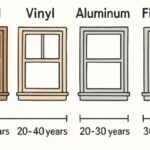A car is made up of numerous complex components working together to ensure smooth and safe operation. When something starts to go wrong, your vehicle often offers warning signs. Recognizing these signs early can prevent minor issues from escalating into major—and costly—repairs.
Common Warning Signs and What They Mean
Understanding the signals your vehicle gives you is the first step toward keeping it in good condition. Ignoring these warnings can lead to breakdowns or compromised safety.
Dashboard Warning Lights
Dashboard lights are your vehicle’s way of telling you that something needs attention. While some lights are routine reminders, others signal critical issues.
- Check Engine Light: This can indicate anything from a loose gas cap to serious engine trouble. If the light is flashing or paired with other symptoms like strange noises or poor performance, seek assistance immediately.
- Brake Warning Light: An illuminated brake light could signal low brake fluid, worn brake pads, or other significant issues related to your braking system.
- Temperature Warning Light: If this light comes on, your vehicle may be overheating. Continuing to drive can cause severe engine damage.
Unusual Noises
Strange noises are one of the most common indicators that something is wrong with your car. Pay attention to the type of noise and where it’s coming from.
- Squealing or Grinding When Braking: This could mean that your brake pads are worn. Ignoring it risks damaging the rotors, resulting in more expensive repairs.
- Knocking from the Engine: A knocking noise could indicate issues with your car’s internal components, such as the rods or crankshaft. This is a situation that requires urgent attention.
- Whining or Clunking When Shifting Gears: These sounds might point to a problem with your transmission. If you’re experiencing gear-shifting issues along with strange noises, consider seeking professional auto transmission repair in Salt Lake City.
Vibrations or Pulling
While vibrations and pulling during normal driving can seem minor, they often indicate underlying problems with essential systems.
- Steering Wheel Vibrations: This can be caused by misaligned wheels, unbalanced tires, or suspension issues. Addressing it promptly is crucial for safe driving.
- Vehicle Pulling to One Side: Pulling can signal issues such as uneven tire pressure, a problem with the brakes, or misaligned wheels. Get it checked to avoid uneven tire wear and reduced handling accuracy.
Fluid Leaks and Associated Issues
Leaking fluid is a clear indication that your vehicle requires attention. The color and location of the leak can help diagnose the issue.
Identifying Different Fluid Leaks
- Clear or Brownish Fluid (Brake Fluid): A leak in the brake system can compromise its functionality, potentially leading to dangerous situations.
- Pink or Red Fluid (Transmission Fluid): Transmission leaks can cause overheating and serious damage if left unaddressed.
- Green, Orange, or Yellow Fluid (Coolant): Coolant leaks result in the engine overheating, which can lead to severe damage if ignored.
Burning Smells
A burning smell is almost always a sign of trouble. It could indicate anything from overheated brakes to an issue with your electrical wiring. If you notice this, stop driving immediately and have your car inspected.
Handling Performance-Related Issues
When your car doesn’t drive the way it should, it’s often an indication of an underlying mechanical problem. Ignoring these performance issues can lead to significant safety risks.
Loss of Power
A noticeable loss of power when accelerating might signal problems with the fuel system, such as a clogged injector or fuel pump malfunction. Alternatively, it could point to transmission trouble.
Difficulty Starting the Engine
If your car struggles to start, the battery, alternator, or starter motor could be at fault. Addressing this quickly helps avoid being left stranded.
Poor Fuel Efficiency
A sudden drop in fuel economy is usually linked to engine, tire, or fuel system issues. Regular maintenance can prevent this from escalating into a more severe problem.
Preventive Measures to Avoid Serious Repairs
While responding to signs of trouble promptly is crucial, preventive maintenance plays a big role in keeping your car in top shape.
Routine Inspections
Schedule regular inspections to catch small problems before they develop into bigger issues. Routine assessments include brake checks, tire rotations, and fluid top-offs.
Keep Up with Maintenance Milestones
Stick to your car’s maintenance schedule, which usually includes tasks like replacing timing belts, flushing fluids, and tuning up the engine.
Listen to Your Vehicle
Above all, pay attention to how your car feels and sounds. Being in tune with your vehicle helps you detect changes early.
Acting quickly when warning signs arise will save you time, money, and frustration. Prioritize regular maintenance and stay aware of how your car should operate. With proactive care, you can ensure your vehicle stays reliable and road-ready for years to come.






